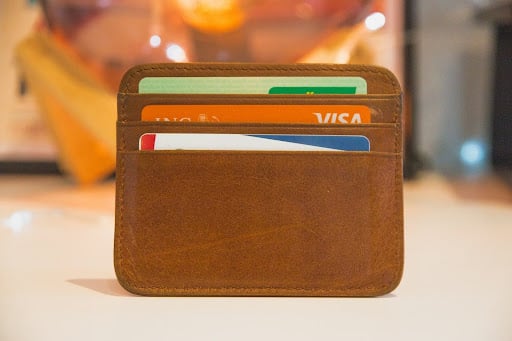
It is possible to create a bank account in Dubai or another emirate even if you do not reside in the United Arab Emirates. However, there are certain restrictions that are present for non-resident accounts. If you want to enjoy all the benefits, you will have to go through the process of getting a residence visa.
Requirements for opening a non-resident bank account in UAE
Essential documents for account opening
- Passport.
- Residence visa.
- Proof of address (utility bill).
- Personal bank statements for the last 6 months as proof of funds.
- Documents confirming sources of income.
- CV with personal information and work experience.
Steps to open your non-resident account
- To increase your chance of opening a bank account, you need to obtain a resident visa. The period for obtaining a visa is 2-3 business days.
- A non-resident must visit the bank in person in order to open an account.
- Copies of these records will be accepted by the bank with completed and signed application forms.
- The bank provides the online banking instructions and bank account number in an official email that is sent after approval.
- A debit card is delivered to the client within 2-5 days.
Timeline for opening a non-resident bank account
In a typical case, a non-resident account can be opened within a singular day. However, the entire process may take slightly longer, as it depends on the individual client’s profile and the bank’s own procedures. Therefore, it is necessary for the applicant to not only have a solid, but also persuasive history.
Account maintenance
When maintaining a savings account, there are no fees in most cases, however some banks may require that the client puts down a minimum balance or deposit, and there might be limitations on how much cash can be withdrawn on a single occassion. It can be necessary for a non-resident to keep a minimum balance of AED 100,000.
Banking services available to non-residents
Savings account
The UAE bank allows natural individuals to open current and savings accounts; non-residents can only create savings accounts. If you want to open a current account, you must apply for a resident visa. Despite this, obtaining a non-resident account without a UAE residence visa and Emirates ID is not simple, as the process entails:
- a more profound compliance procedure – the bank has to request a larger package of supporting documents;
- Higher deposit or balance requirements can be applicable, and buying bank products could be subject to restrictions depending on the particular bank, the client’s profile, and their country;
- limitations on available UAE banking services like credit cards.
Additionally, non-residents can anticipate less overseas financial services offered by UAE than to citizens.
Debit cards
For the savings account, a debit card is issued. This card is usable worldwide with a daily withdrawal limit typically around 15,000 dirhams with account management through online banking, provided for free.
Within the UAE, cards are always issued in dirhams. There are no foreign currency bank cardsand It is only possible to deposit cash to an account or card without losses only in dirhams. If you want to withdraw or deposit any sort of foreign currency, all banks will charge a fee of 1% of the amount.
Checkbook
A checkbook is not provided in a savings account. Please be aware that any rental property and utility payments in the United Arab Emirates must be made with a checkbook, which is only available when opening an account for a resident of the country.
Credit cards
A credit card is also not provided in a savings account. To apply for a loan from Emirati banks, you must be a UAE resident.
Because non-resident Dubai bank accounts offer fewer benefits than resident bank account,it is therefore preferable to obtain a UAE resident visa first.

Advantages of non-resident bank accounts in the UAE
- Quick international transfers.
- Foreign currency transactions.
- Reliable UAE banking system.
- Income generation and long-term deposits.
Also, opening bank accounts may be required for company formation in the UAE. Non-residents may transfer money internationally from their personal accounts to any nation, with the exception of nations that are sanctioned by the UAE, in amounts that comply with the client’s specified transaction parameters. Remember, though, that even if you create a non-resident account in the United Arab Emirates, you continue to be a tax resident of the nation where you spend the most of your year. This suggests that you may be liable for taxes on any income that is deposited into your bank account in the United Arab Emirates.
Limitations of a non-resident bank account
Because of the complicated paperwork and strict regulations, it can be difficult for non-residents to navigate the banking obstacles in the United Arab Emirates. Higher minimum balance requirements and difficulties opening accounts are common issues for non-residents. These difficulties include:
- Longer opening process.
- Limited financial services.
- Limited choice of banks willing to open bank account in UAE for non-residents.
- No credit cards.
- Non-residents cannot open UAE bank account online.
All nationals are qualified to apply for a bank account, with the exception of those from states that the UAE has prohibited or sanctioned, like:
- Iran
- Israel
- North Korea
There are also a few states with a high-risk, such as the Russian Federation. Although their nationals are free to apply, it can take longer for approval and you might need more paperwork.
If you have any questions about the procedure for opening a bank account, you can contact GFLO Consultancy for a free consultation.
Discover more from Market Business News
Subscribe to get the latest posts sent to your email.

